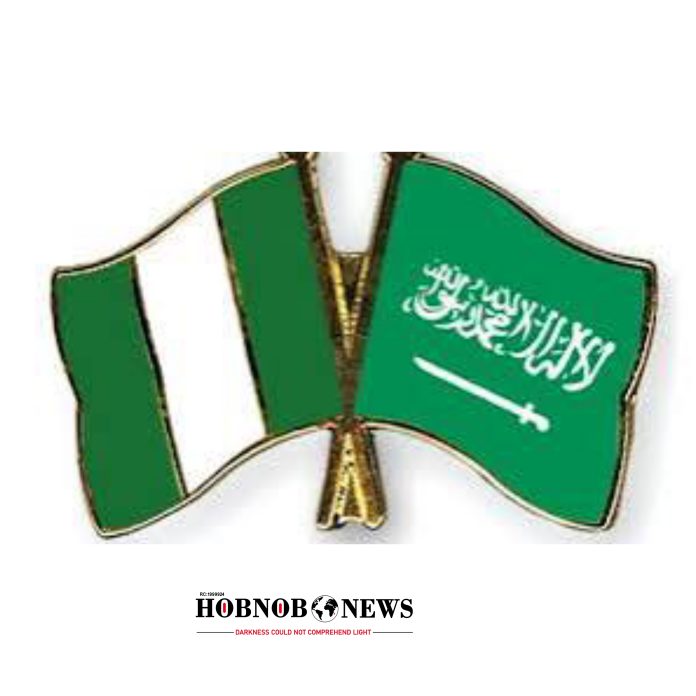Nigeria has entered into a strategic cooperation agreement with Saudi Arabia’s Halal Products Development Company (HPDC) to strengthen its role in the global halal market, which is valued at $7.7 trillion.
The agreement, formalized at the Makkah Halal Forum in Saudi Arabia on Wednesday, aims to enhance investment, technical collaboration, and market accessibility in key sectors such as food production, pharmaceuticals, finance, and livestock.
Vice President Kashim Shettima, who was represented at the event by the Deputy Chief of Staff to the President (Office of the Vice President), Senator Ibrahim Hassan Hadejia, described the partnership as a significant milestone for Nigeria’s economic development.
According to a statement issued by Stanley Nkwocha, the Senior Special Assistant to the President on Media and Communications (Office of the Vice President), Shettima emphasized, “This collaboration is an important step in our ambition to not only tap into the lucrative halal market but to establish Nigeria as a leading global player.”
He further stated, “We are committed to leveraging this collaboration to create jobs, attract foreign investment, and diversify our economy in line with the Renewed Hope Agenda of President Bola Ahmed Tinubu.”
The agreement was executed with HPDC, a subsidiary of the Saudi Public Investment Fund, and represented by its Chief Executive Officer, Fahad Alnuhait. The signing took place in the presence of Saudi Arabia’s Minister of Commerce, Dr. Majid bin Abdullah Al-Qasabi; Chairman of the Makkah Halal Forum’s Organizing Committee, His Excellency Mr. Fawaz bin Talal Al-Harbi; and Chairman of the Makkah Chamber of Commerce and Industry, His Excellency Mr. Abdullah bin Saleh Kamel.
Speaking on the development, Aliyu Bunu Sheriff, Special Assistant to the President on Export Promotion, stated that the agreement builds upon Nigeria’s expanding Islamic finance sector, which has already seen growth through initiatives like Sukuk bonds for infrastructure financing and the establishment of Islamic banks such as Jaiz Bank, Taj Bank, and Lotus Bank.
Sheriff highlighted that the Islamic Development Bank (IsDB) and the Arab Bank for Economic Development in Africa (BADEA) would support the initiative by offering capacity building, regulatory framework development, and financing opportunities.
He noted, **“This agreement aligns perfectly with the Renewed Hope Agenda by creating new jobs, attracting foreign direct investment, and diversifying our economy.
“The halal economy extends beyond Muslim consumers. Non-Muslim majority countries like Brazil, Australia, and Thailand are already leveraging the sector for substantial export growth,”** he added.
The Nigerian delegation included several key figures such as Chairman of Dar Al Halal Group, Alhaji Muhammadu Ladan Dikko; Chairman of the Board of Directors, Bank of Industry, Dr. Mansur Muhtar; and Minister of Trade and Investment, Dr. Jumoke Oduwole, represented by Ambassador Nura Rimi.
Others in attendance were Minister of Foreign Affairs, Ambassador Yusuf Tuggar (represented by Ambassador Mahmoud Lele); Representative of the Standard Organization of Nigeria, Hajiya Amina; Chairman of the Nigeria-Saudi Chamber of Commerce, Engr. Ibrahim Usman; and Minister of Finance, Mr. Wale Edun, represented by Nur Muftau Baba Ahmed.
Additionally, the CEO of the Nigeria Export Promotion Council, Mrs. Nonye Aneyi (represented by Mustapha Aminu); Deputy President of NACCIMA, Alhaji Jani Ibrahim; and Managing Director of the Bank of Industry, Mr. Olasupo Olusi (represented by Mrs. Jelilat Ismaila-Ayinde) were present.
Vice President Shettima previously emphasized the sector’s economic potential during the Halal Economy Stakeholders Engagement Programme held at the Banquet Hall of the Presidential Villa, Abuja, in September last year. He noted that “increasing Nigeria’s halal exports to OIC markets from 2% to 6% could boost the country’s GDP by $540 million, while strategic import substitution could add nearly $1 billion by 2027.”

